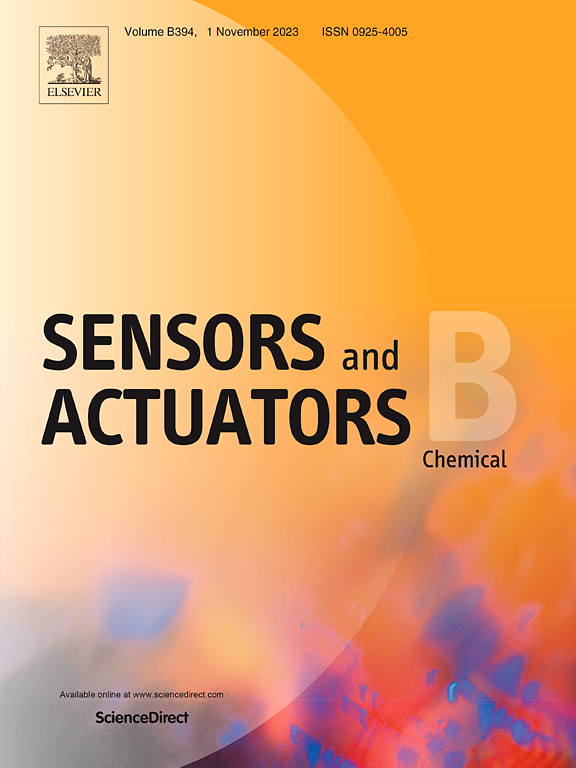CoOOH 纳米片作为 CRISPR-Cas12a 系统的支持者,促进细胞中 miRNA-21 的成像
IF 3.7
1区 化学
Q1 CHEMISTRY, ANALYTICAL
引用次数: 0
摘要
细胞中 miRNA-21 的异常表达往往与肿瘤的发生和转移有关。CRISPR-cas12a 系统因其独特的信号放大特性而被开发用于体外检测 miRNA。但其复杂的成分和细胞传递方面的挑战限制了其在细胞成像中的应用。在这项研究中,我们设计了一种基于静电吸附的探针,将带正电荷的羟基氧化钴(CoOOOH)纳米片与带负电荷的 CRISPR-cas12a 系统相结合,从而实现了 miRNA-21 的检测和细胞内成像。这种方法是利用抗坏血酸将纳米氧化钴还原成 Co2+,然后释放出 CRISPR-Cas12 的活性形式,以检测 miRNA-21。该探针对 miRNA-21 的线性检测范围为 0.5 pM-50 pM 和 100 pM-20 nM,检测限为 0.32 pM。它在 miRNA-21 分析方面还显示出良好的选择性、准确性、可重复性和生物相容性。在随后的细胞实验中,该探针表现出低细胞毒性和出色的细胞成像能力。因此,该探针为 miRNA-21 分析提供了一种创新方法。本文章由计算机程序翻译,如有差异,请以英文原文为准。
CoOOH nanoflake as supporter of CRISPR-Cas12a system for facilitated imaging of miRNA-21 in cells
The aberrant expression of miRNA-21 in cells is frequently associated with the occurrence and metastasis of tumors. The CRISPR-cas12a system has been developed for in vitro detection of miRNA due to its distinctive signal amplification characteristics. But its intricate composition and challenges in cellular delivery have limited its application in cell imaging. In this study, we designed an electrostatic adsorption-based probe by combining positively charged cobalt hydroxyl oxide (CoOOH) nanoflakes with negatively charged CRISPR-cas12a system which allows for detection and intracellular imaging of miRNA-21. This method involves using ascorbic acid to reduce CoOOH nanoflakes into Co2+, which subsequently releases the active form of CRISPR-Cas12 for detecting miRNA-21. The probe has a linear detection range for miRNA-21 from 0.5 pM-50 pM and 100 pM-20 nM, with a detection limit of 0.32 pM. It also shows good selectivity, accuracy, good reproducibility and biocompatibility for miRNA-21 analysis. In subsequent cell experiments, the probe exhibits low cytotoxicity and remarkable cell imaging capabilities. Therefore, this probe offers an innovative approach for miRNA-21 analysis.
求助全文
通过发布文献求助,成功后即可免费获取论文全文。
去求助
来源期刊

Sensors and Actuators B: Chemical
工程技术-电化学
CiteScore
14.60
自引率
11.90%
发文量
1776
审稿时长
3.2 months
期刊介绍:
Sensors & Actuators, B: Chemical is an international journal focused on the research and development of chemical transducers. It covers chemical sensors and biosensors, chemical actuators, and analytical microsystems. The journal is interdisciplinary, aiming to publish original works showcasing substantial advancements beyond the current state of the art in these fields, with practical applicability to solving meaningful analytical problems. Review articles are accepted by invitation from an Editor of the journal.
 求助内容:
求助内容: 应助结果提醒方式:
应助结果提醒方式:


